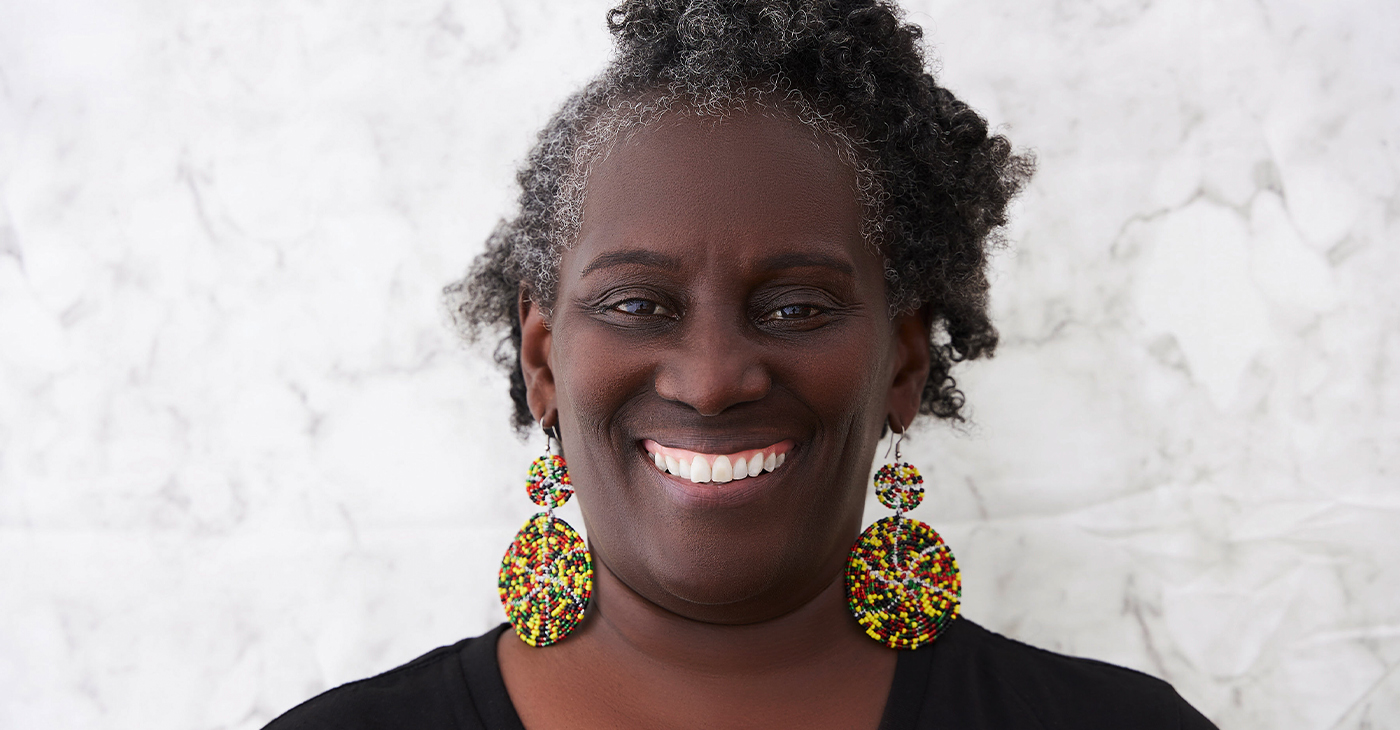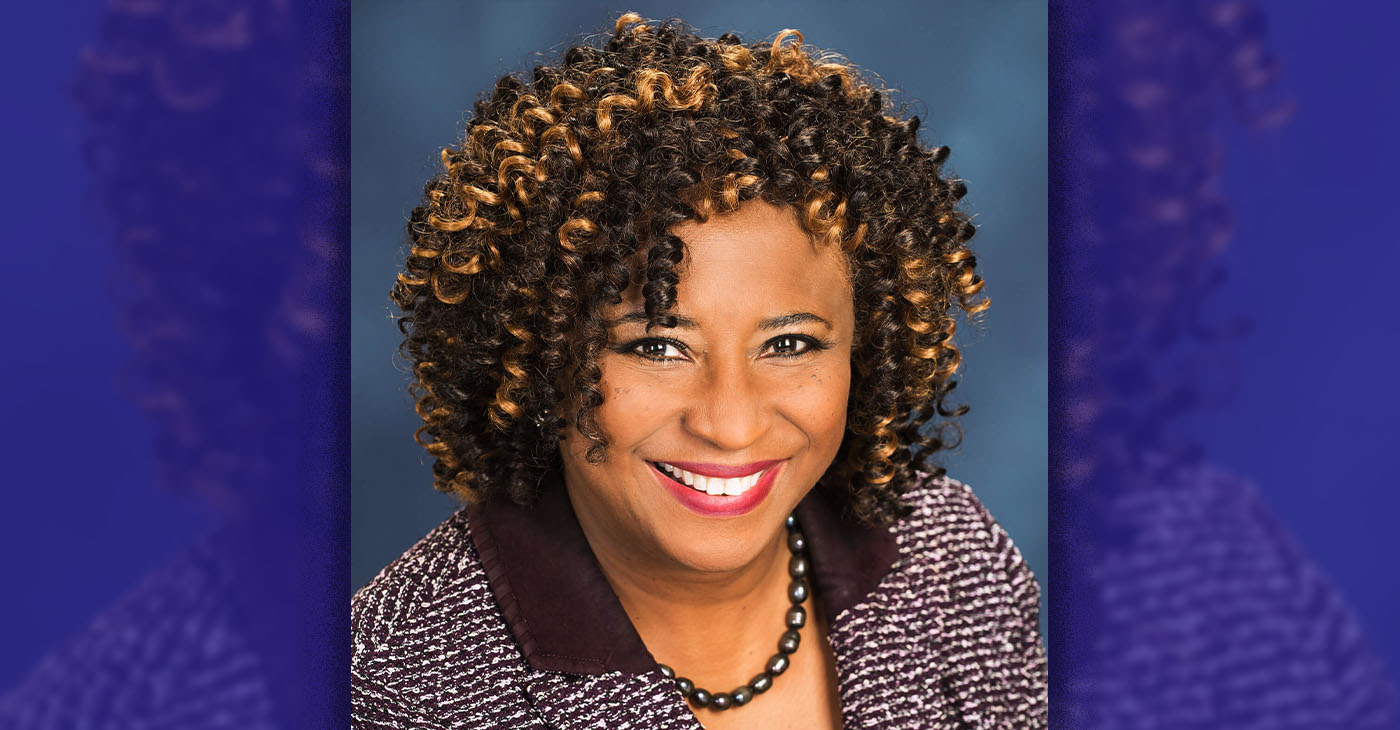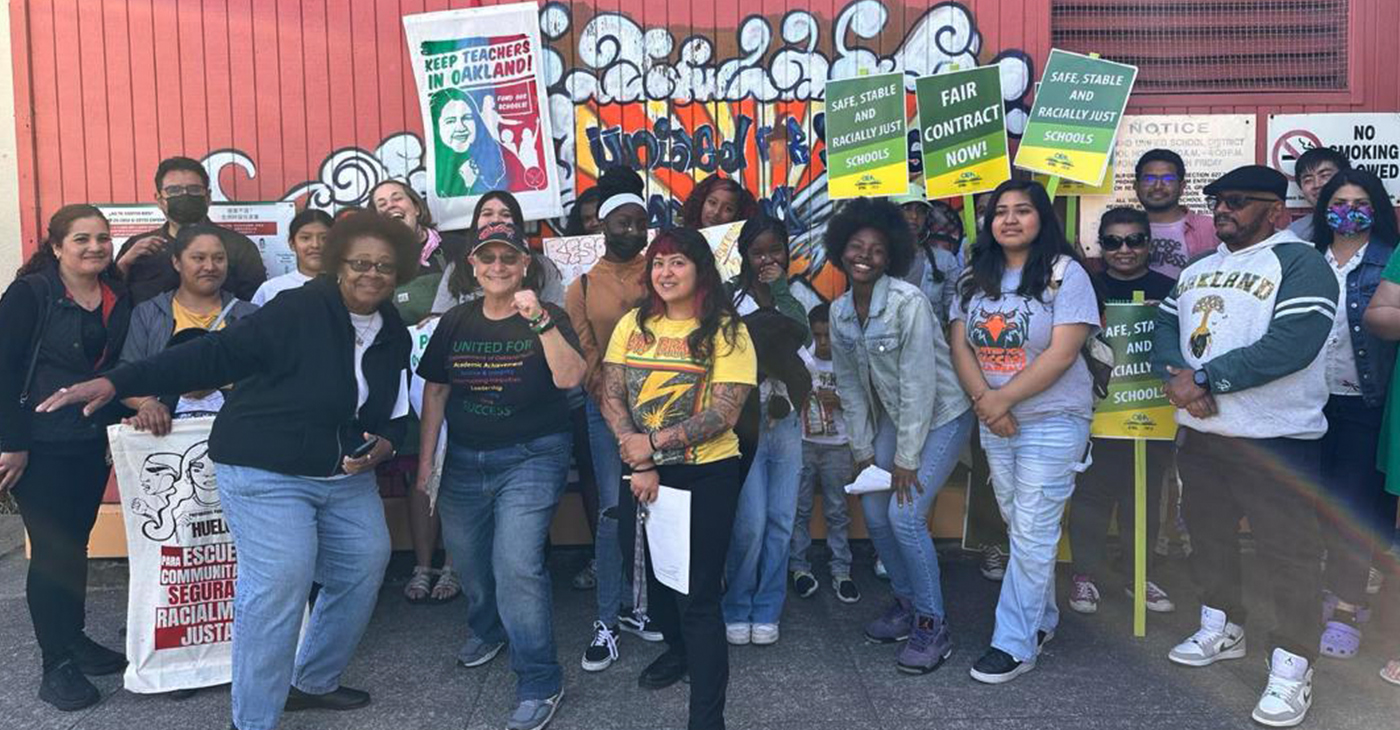Uncategorized
A Father-Daughter Relationship Blooms Amid Philippine Flora

For many of us, perhaps even most of us, the opportunity to go to college is a way to disconnect, even if ever so slightly, from our parents.

understand her dad, Hermes, and his world.
That’s not Kat Gutierrez’s story, even though at the start, it seemed as if it might be heading along that all-too-familiar course. Her time as a grad student at UC Berkeley included the opportunity to reconnect with her father in unexpected ways.
In the past year or two, Kathleen “Kat” Gutierrez, and her father, Hermes, have become collaborators as she pursues her doctoral research on the history of Philippine botany.
While growing up, she saw her father for what he was at the time, a cargo trucker from Southern California. Mostly unknown to her was her father’s past; before immigrating to the U.S., he’d been a scientist, a botanist in the Philippines. It was an era when science didn’t always win favor with the ruling elite.
He was in the middle of trying to publish research on the application of Philippine medicinal plants when things soured. He was accused of having Communist sympathies. Hermes Gutierrez and his partner, Estrella, a journalist, decided to leave the Philippines for a while to let things cool down under the government of Ferdinand Marcos. They visited his brother in Southern California and ultimately settled in for the long haul.
He was 52 when they made the move. Kat was born three years later.
“I knew so little about him and botany when I was growing up, so very little,” says Kat Gutierrez, who wrote about her reengagement with her father’s past in the Graduate Division’s GradNews. I‘d see him signing checks, and he’d put Ph.D. at the end, and I didn’t know what that was all about.
“My mom would point to this gigantic volume on the bookshelf. It was 500 pages, and said, `Your dad wrote that.’ For summertime play with my friends, we’d take these books with all these pictures of plants in them outside, and we’d try to find the plants in the books.”
Through trial and error, she came to realize that tropical flora doesn’t grow randomly in Los Angeles.
Ultimately she would leave L.A. for Berkeley, first as an undergrad (2006-10) and then as a grad student. That’s when things changed. She applied for and won a Fulbright-Hays grant to do research and training concerning the Philippines. And she found out that her father had been given a Fulbright- Hays grant in the 1960s. Unlike his daughter, Hermes spent his grant time at Harvard.
“It was then that I asked him about Harvard, asking him what his experience had been like,” Gutierrez says. “He told me it was cold, that people made fun of his accent and that it was difficult to take showers because the weather was so cold.”
Gradually Gutierrez gained clarity that her father was more than a trucking terminal dispatcher and driver.
That fact came into full resolution last summer. Hermes Gutierrez moved back to the Philippines in 2014 in an effort to reconnect to his life as a scholar. In 2018, his daughter spent the summer there working on her doctoral dissertation on Philippine botanical traditions at the end of the 19th and beginning of the 20th centuries. Her father became her mentor.
“He’d had a nice career there, but it was unfulfilled when he had to leave in 1985,” she says. “There were some scientists who stayed, and he’d figured that part of his life was done, so he didn’t talk about it. Then he went back. Some of his scientist friends are still alive, and they’ve offered him a nice community.
“Before then, the Philippines were just stories to me. And I’d been working in school-based health. But I switched back to my real passion, Southeast Asia. And as I was talking and writing this paper we just started chatting, and I was absolutely amazed. He was part of this very tight group, and they called him the American Linnaeus.”
That’s high praise. Carl Linnaeus was the Swedish botanist and zoologist who championed binomial nomenclature. He’s the guy who decided we’d break into Latin to call a dog “canis familiaris” and a redwood tree “sequoia sempervirens,” when getting technical. And while the man who is generally referred to as the American Linnaeus is Elmer D. Merrill, it was Merrill who trained Eduardo Quisumbing, who was the man who trained Hermes Gutierrez.
“It seems like a fortuitous circumstance,” Gutierrez says. “Berkeley wanted me to have a solid year in my research area. So, I went to the Philippines. He was there, having decided to kick-start his career in his 80s. Nearly every trip I brought him along. There was a lot of emotional labor involved. But it was a wonderful time. In the Philippines they treat the elderly population with more respect and reverence than in other places. And people would absolutely adore him and his storytelling.
“It was a very strong year. I almost feel like I blacked out parts of it because it went by so fast. He is very funny and honest. Sometimes he’ll tell me I have to finish up my dissertation soon `because I’m heading out.’ Other times he’ll tell me to take my time, that `I’m going to live another 10 years.’ It’s funny, but at the same time it pulls at my heartstrings.”
Gutierrez says that in following her educational leanings, she rediscovered her father. And she can’t imagine not returning to the Philippines as the writing process evolves.
“I’m trying my best in many ways to be back beside him,” she says. “I’m not kidding when I say maybe he’ll be my writing partner. He’s also finishing up his manuscript. And I’ll help him with that, too.”
His manuscript? Hermes Gutierrez lived through World War II in the Philippines, worked his way through high school and college to get his degree, and delayed getting married until he was 38 in pursuit of education. Circumstances intervened, and while he finished his dissertation, it was never published. Now he’s trying to rectify that and his daughter can help.
“My work is a small honor to him and his story,” Kat Gutierrez says.
Arts and Culture
Rise East Project: Part 3
Between 1990 and 2020, Oakland lost nearly half of its Black population due to economic and social forces. East Oakland, once a middle-class community, is now home to mostly Black families living in poverty.

The Black Cultural Zone’s Pivotal Role in Rebuilding Oakland’s Black Community
By Tanya Dennis
Between 1990 and 2020, Oakland lost nearly half of its Black population due to economic and social forces. East Oakland, once a middle-class community, is now home to mostly Black families living in poverty.
In 2021, 314 Oakland residents died from COVID-19. More than 100 of them, or about 33.8%, were Black, a high rate of death as Blacks constitute only 22.8% of Oakland’s population.
This troubling fact did not go unnoticed by City and County agencies, and the public-at-large, ultimately leading to the development of several community organizations determined to combat what many deemed an existential threat to Oakland’s African American residents.
Eastside Arts Alliance had already proposed that a Black Cultural Zone be established in Deep East Oakland in 2010, but 2020’s COVID-19 pandemic galvanized the community.
Demanding Black legacy preservation, the Black Cultural Zone (BCZ) called for East Oakland to be made an “unapologetically Black” business, commercial, economic development community.
Established initially as a welcoming space for Black art and culture, BCZ emerged into a a community development collective, and acquired the Eastmont police substation in Eastmont Town Center from the City of Oakland in 2020.
Once there, BCZ immediately began combating the COVID-19 pandemic with drive-thru PPE distribution and food giveaways. BCZ’s Akoma Market program allowed businesses to sell their products and wares safely in a COVID-compliant space during the COVID-19 shutdown.
Currently, Akoma Market is operated twice a month at 73rd and Foothill Boulevard and Akoma vendors ‘pop up’ throughout the state at festivals and community-centered events like health fairs.
“Before BCZ existed, East Oakland was a very depressing place to live,” said Ari Curry, BCZ’s chief experience officer and a resident of East Oakland. “There was a sense of hopelessness and not being seen. BCZ allows us to be seen by bringing in the best of our culture and positive change into some of our most depressed areas.”
The culture zone innovates, incubates, informs, and elevates the Black community and centers it in arts and culture, Curry went on.
“With the mission to center ourselves unapologetically in arts, culture, and economics, BCZ allows us to design, resource, and build on collective power within our community for transformation,” Curry concluded.
As a part of Oakland Thrives, another community collective, BCZ began working to secure $100 million to develop a ‘40 by 40’ block area that runs from Seminary Avenue to the Oakland-San Leandro border and from MacArthur Boulevard to the Bay.
The project would come to be known as Rise East.
Carolyn Johnson, CEO of BCZ says, “Our mission is to build a vibrant legacy where we thrive economically, anchored in Black art and commerce. The power to do this is being realized with the Rise East Project.
“With collective power, we are pushing for good health and self-determination, which is true freedom,” Johnson says. “BCZ’s purpose is to innovate, to change something already established; to incubate, optimizing growth and development, and boost businesses’ economic growth with our programs; we inform as we serve as a trusted source of information for resources to help people; and most important, we elevate, promoting and boosting Black folks up higher with the services we deliver with excellence.
“Rise East powers our work in economics, Black health, education, and power building. Rise East is the way to get people to focus on what BCZ has been doing. The funding for the 40 by 40 Rise East project is funding the Black Culture Zone,” Johnson said.
Alameda County
Help Protect D.A. Pamela Price’s Victory
Alameda County District Attorney Pamela Price is asking supporters of the justice reform agenda that led her to victory last November to come to a Town Hall on public safety at Montclair Presbyterian Church on July 27.

By Post Staff
Alameda County District Attorney Pamela Price is asking supporters of the justice reform agenda that led her to victory last November to come to a Town Hall on public safety at Montclair Presbyterian Church on July 27.
Price is facing a possible recall election just six months into her term by civic and business interests, some of whom will be at the in-person meeting from 6:00-9:00 p.m. at 5701 Thornhill Dr. in Oakland.
“We know that opponents of criminal justice reform plan to attend this meeting and use it as a forum against the policies that Alameda County voters mandated DA Price to deliver. We cannot let them succeed,” her campaign team’s email appeal said.
“That’s why I’m asking you to join us at the town hall,” the email continued. “We need to show up in force and make sure that our voices are heard.”
Price’s campaign is also seeking donations to fight the effort to have her recalled.
Her history-making election as the first African American woman to hold the office had been a surprise to insiders who had expected that Terry Wiley, who served as assistant district attorney under outgoing D.A. Nancy O’Malley, would win.
Price campaigned as a progressive, making it clear to voters that she wanted to curb both pretrial detention and life-without-parole sentences among other things. She won, taking 53% of the vote.
Almost immediately, Price was challenged by some media outlets as well as business and civic groups who alleged, as she began to fulfill those campaign promises, that she was soft on crime.
On July 11, the recall committee called Save Alameda for Everyone (S.A.F.E.) filed paperwork with the county elections office to begin raising money for the next step toward Price’s ouster: gathering signatures of at least 10% of the electorate.
S.A.F.E. has its work cut out for them, but Price needs to be prepared to fight them to keep her office.
In a separate sponsored letter to voters, Price supporters wrote:
“We know that you supported DA Price because you believe in her vision for a more just and equitable Alameda County. We hope you share our belief that our criminal justice system has to be fair to everyone, regardless of their race, gender, ethnicity, religion, or socioeconomic status.
“The Republican-endorsed effort is a blatant attempt to overturn the will of the voters and a waste of time and money. It is an attempt to silence the voices of those who want real justice. We cannot let these election deniers succeed.
“Will you make a donation today to help us protect the win?
“Please watch this video and share it with your friends and family. We need to stand up to the sore losers and protect the win. Together, we can continue to make Alameda County a more just, safe and equitable place for everyone.”
For more information, go to the website: pamelaprice4da.com
or send an e-mail to info@pamelaprice4da.com
Bay Area
Oakland Teachers Walk Out
After negotiating late into the night and months of fruitless bargaining with the Oakland Unified School District, Oakland teachers went out on strike Thursday morning. “Our (50-member) bargaining team has been working for seven months working, making meaningful proposals that will strengthen our schools for our students,” said Oakland Education Association (OEA) Interim President Ismael “Ish” Armendariz, speaking at press conference Monday afternoon.

OEA calls unfair labor practices strike after 7 months of negotiations.
By Ken Epstein
After negotiating late into the night and months of fruitless bargaining with the Oakland Unified School District, Oakland teachers went out on strike Thursday morning.
“Our (50-member) bargaining team has been working for seven months working, making meaningful proposals that will strengthen our schools for our students,” said Oakland Education Association (OEA) Interim President Ismael “Ish” Armendariz, speaking at press conference Monday afternoon.
“OUSD has repeatedly canceled bargaining sessions, has failed to offer meaningful proposals or counterproposals at a majority of the bargaining sessions and has repeatedly failed to discuss certain items,” Armendariz said.
“The days (of bargaining) have been long, and after hours of waiting, the superintendent finally showed up on Sunday night at 11:00 p.m.to meet with our team (for the first time),” he said. “(But) the district continues to come to the table unprepared, and this is unacceptable.”
“This is illegal, and OEA has filed an Unfair Labor Practice charge with the state Public Employment Relations Board (PERB). Under California law, OEA has a right to strike over unfair labor practices,” he said.
OEA represents 3,000 teachers, counselors, psychologists, speech pathologists, early childhood educators, nurses, adult education instructors and substitute teachers, serving 35,000 Oakland public school students. Other labor groups representing school employees include SEIU 1021 and construction unions.
In a press statement released on Tuesday, OUSD said it has been trying to avert a strike.
“The district will remain ready to meet with the teachers’ union at any time and looks forward to continuing our efforts to reach an agreement with OEA … We will continue to do everything possible to avoid a work stoppage.”
“Our children’s education does not need to be interrupted by negotiations with our union, especially given the major offer the District made on Monday,” other district press statements said. “We are committed to continuing to work with our labor leaders to discuss their salaries and support services for our students without the need for a strike.”
OUSD’s latest salary proposal, released this week, includes a 10% raise retroactive to Nov. 1, 2022, and a $5,000, one-time payment to all members.
OEA’s recent salary proposal asked for a 10% retroactive raise to all members, a one-time $10,000 payment to members who return for the 2023-2024 school year, and increases from $7,500 to $10,000 to salaries, based on years of experience.
In addition to pay demands, OEA is making “common good” proposals that serve families and the community, including protecting and enhancing special education programs, putting the brakes on closing schools in flatland neighborhoods, shared school leadership, safety, and support for students.
-

 Community3 weeks ago
Community3 weeks agoFinancial Assistance Bill for Descendants of Enslaved Persons to Help Them Purchase, Own, or Maintain a Home
-

 City Government5 days ago
City Government5 days agoCourt Throws Out Law That Allowed Californians to Build Duplexes, Triplexes and RDUs on Their Properties
-

 Business3 weeks ago
Business3 weeks agoV.P. Kamala Harris: Americans With Criminal Records Will Soon Be Eligible for SBA Loans
-

 Activism4 weeks ago
Activism4 weeks agoOakland Post: Week of April 10 – 16, 2024
-

 Activism2 weeks ago
Activism2 weeks agoOakland Post: Week of April 24 – 30, 2024
-

 Community3 weeks ago
Community3 weeks agoAG Bonta Says Oakland School Leaders Should Comply with State Laws to Avoid ‘Disparate Harm’ When Closing or Merging Schools
-

 Community3 weeks ago
Community3 weeks agoRichmond Nonprofit Helps Ex-Felons Get Back on Their Feet
-

 Community3 weeks ago
Community3 weeks agoOakland WNBA Player to be Inducted Into Hall of Fame











































